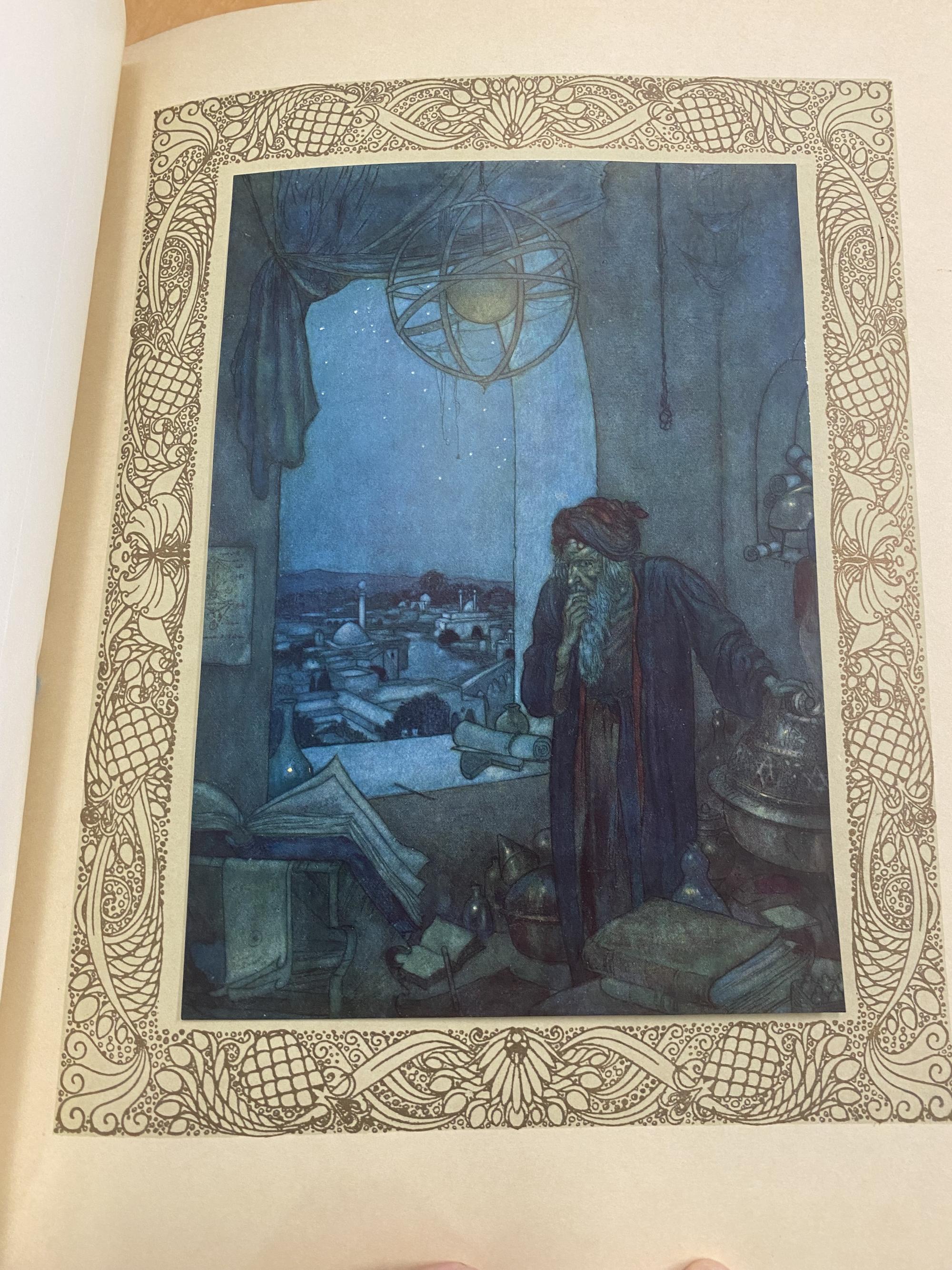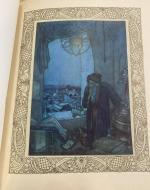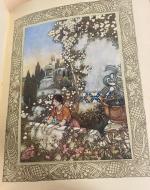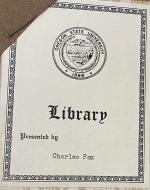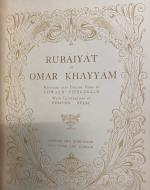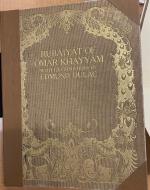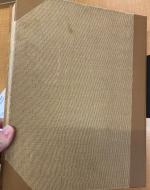Created by Michaela Bauer on Thu, 06/01/2023 - 01:26
Description:
Dear Charles,
I hope that you will enjoy this gift of this middle-eastern poem called The Rubaiyat. It was originally written by an eastern poet by the name of Omar Khayyam, but it was translated into by Edward Fitzgerald.
The poem is about the eastern interpretation of life and its various subjects such as love and eventually death. There are two verses in particular that I think you will enjoy the most. The first of these verses is verse VII and it goes:
“Come, fill the Cup, and in the fire of Spring
Your Winter-garment of Repentance fling:
The Bird of Time has but a little way
To flutter--and the Bird is on the Wing.”
—Fitzgerald, Rubaiyat, 1909
This verse shows how fire is actually used in a positive way in Islam because in Islam, fire is a symbol of rebirth. When this verse mentions “the fire of Spring” and flinging the “Winter-garment of Repentance”, the poem is using the bitter cold of winter to show the old life of sin and Spring to be renewal once on steps through the fire. “The bird of time” having “but a little way” to flutter means that this renewal of Spring and this chance to go through the fire of renewal will take some time, but “the bird is on the wing” means that it will arrive eventually. I thought that you would enjoy that since you are very much of the mindset that everyone deserves a second chance.
The second verse that I think you will enjoy is verse X and it goes like this:
“And this reviving Herb whose tender Green
Fledges the River-Lip on which we lean--
Ah, lean upon it lightly! for who knows
From what once lovely Lip it springs unseen!”
—Fitzgerald, Rubaiyat, 1909
This verse is about a first kiss (or “reviving herb”) and the “tender green” is the lovely part of the herb in which one would get all of the nutrients necessary to “revive” from gloom. Comparing the “river” to the “lip” is noteworthy because in ancient times, people would live (“on which we lean”) down by the river as rivers were the primary sources of water and therefore, essential to life in a way that romantics view love to be essential. When it says “From what once lovely Lip it spring unseen!” that means that the kiss will produce a beautiful new experience (or a “spring”). Since you’re a romantic, I thought that you would appreciate that verse.
I bought it for you because I know that you really enjoy Oriental aesthetics and the artwork of Edmund Dulac and because you like that new artist Pablo Picasso (such as his “Blue Period” (SEE FIGURE 1) and his “Rose period” (SEE FIGURE 2) which I know that you enjoy). Since these illustrations were done by Dulac and similar to Picasso, I knew that I had to get you this book. The illustrations have a wax paper type of protection that you can flip up from the bottom so that they will not be ruined. I also chose this book for you because I knew that you love to donate all of your old things to universities (such as the one called “Oregon State University”) so I was thinking that, upon your death, you could leave it to them in your will with a little card indicating such (SEE FIGURE 3). The other thing that I know that you will enjoy is the golden peacocks on the cover page (SEE FIGURE 4) because it really adds to the aesthetic of the piece and really looks beautiful. The last thing that I believe that you will enjoy is the cover because it’s made of a good quality canvas (SEE FIGURE 5 AND FIGURE 6) and you can bet your boots that it would suffer any serious damage anytime soon and that it will last a lifetime both for you, and for the students to whom you will likely donate the book upon your death at the university.
Well, dear Charles, I hope that you enjoy this lovely copy of The Rubaiyat. It truly is a lovely poem with beautiful texts and exquisite illustrations. I hope that you will enjoy it for many years to come and that students will enjoy it for many years to come after your death.
Your most loyal friend,

